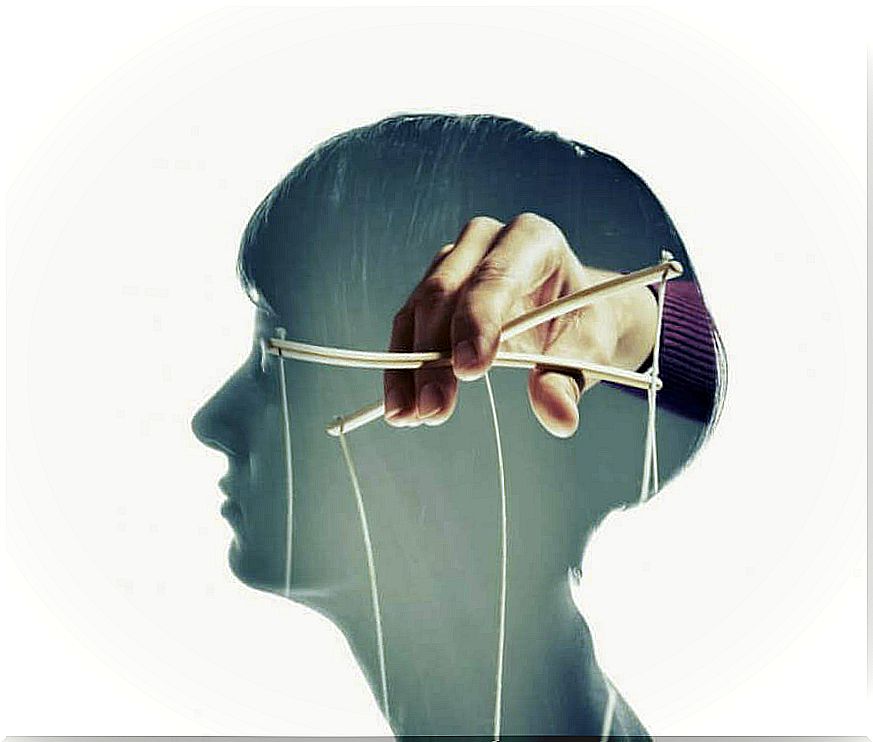Harmful Relationships That Create Addiction

Harmful dating relationships that create addiction can begin like any normal, healthy bond. Of course, they will quickly become unhealthy and dependent. Although no one wants to be in a toxic relationship, there are many psychological aspects and traumas that affect an individual relapsing into them or simply not being able to leave.
The most delicate problem with this type of relationship is that in many cases individuals manage to identify that they are not happy, or that they are receiving undue treatment. But still they prefer to remain tied to their partners than to remain alone or to stop receiving what they consider love.

Harmful relationships that create addiction
We must start by defining what a toxic relationship is. Basically, it is one in which one or both individuals within the relationship attack each other physically and / or psychologically, without being able to break the bond that unites them.
People who experience this type of affective dependence have low self-esteem as a common denominator, and in many cases they experienced or witnessed abusive behaviors within their home as children.
This, of course, makes it even more difficult for these individuals to get rid of these types of situations and, in many cases, they will have to seek professional help and psychological therapy to be able to overcome their past experiences and make good choices regarding their partners in the future.
Distinctive signs of abuse
1. Physical abuse
Bumps and bruises that were not there before. If a close person has injuries, either occasionally or regularly, investigate and help them. Of course, the Law penalizes this type of action, but many women are afraid of abandoning a partner who mistreats them because they fear the consequences or being harassed after the separation.
It is important that you do not feel afraid and that you lean on someone who can protect you and help you. In addition, there are associations to help in these cases.
2. Psychological abuse
There are many ways to receive psychological abuse from a partner. It can start with yelling, accusations, blackmail, threats or disqualifications that make the other party feel diminished, annulled and finally their self-esteem is diminished.
This type of abuse is not usually direct or perceptible in many cases, it begins with small comments about weight, lack of intelligence, they blame you for problems in the relationship … and, above all, blackmail: “Yes you do not improve I will stop loving you ”or“ You will not find anyone who loves you like me ”. Luckily it’s true, you will find someone better.
As in the case of physical violence, many of these behaviors are related to bad experiences from childhood, such as the development of avoidant attachment in children.

3. Recurring lies
Another characteristic of toxic and addictive relationships is the recurrent use of lies. Lies are an absolutely painful form of deception for those who suffer from them. When they begin to be used in a relationship, it will be noticed that they will become more and more recurrent, and they can become so large that individuals can no longer recognize each other.
4. Obsession to control or change the partner
This type of unhealthy behavior is usually one of the most addicting. The issue of controlling the couple goes through several levels of attack, from direct requests for the other person to act in a particular way to incurring in the search and hacking of the couple’s phone or social networks.
5. Comparisons
Comparisons are often a way of inflicting pain, often unconsciously, on the partner. This will make the individual feel diminished, incapable, and undeserving of affection for not being able to meet all expectations. In turn, the person who was the victim of the comparison will enter an addictive game by trying to satisfy the demands of their partner by nullifying their true identity.
If you identify with one or more behaviors like this within your relationship, do not hesitate to request psychological help that will allow you to overcome this type of toxicity in your life.










